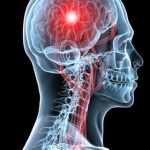Acupuncture + Your Brain + MRI = How Acupuncture Works
5.27brain-blood-flow
A new study completed by Dr. Bruce Rosen of Harvard Medical School has determined how Acupuncture affects pain. His study shows when needling Acupuncture points, which are specific to reducing pain, blood flow is reduced to key areas in the brain within seconds. Not only does this show why Acupuncture can treat pain, but also while it has also been shown effective for treating addictions. Although modern medicine is still attempting to determine how exactly Acupuncture works, their findings may "connect the dots, showing how a common pathway in the brain could make acupuncture helpful for a variety of conditions." Dr. Rosen's team used functional Magnetic Resonance Imagine (fMRI) on approximately 20 healthy adults before, during, and after Acupuncture treatments. Functional MRI testing allows scientists to show changes in blood flow and oxygen levels in the blood. The researchers needled points in the hand, which are commonly used for pain relief based on Traditional Chinese Medicine (TCM), and then noticed blood flow decreased within seconds of the volunteers reporting a heaviness in their hands (a sign that the acupuncture was completed correctly). When a volunteer stated they were having pain their scans showed an increase in blood to the same area of the brain. ''In effect, acupuncture is quieting down key regions of the brain.''
The specific areas of the brain where the researchers saw activity included those involved in mood, pain, and cravings. This would help to explain why multiple studies have found Acupuncture appropriate for depression, eating problems, addictions, and pain.
As more research continues to surface about the possible uses of Acupuncture it will more than likely spread the need for this medicine across the Western world. We hope to see Acupuncture as part of the daily community, private medical practices, as well as hospital care for patients.

